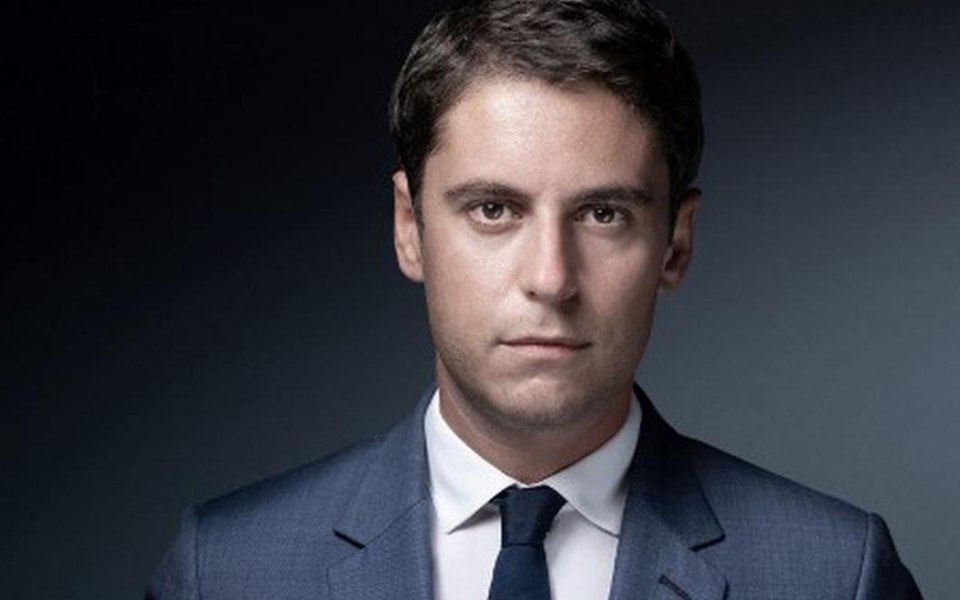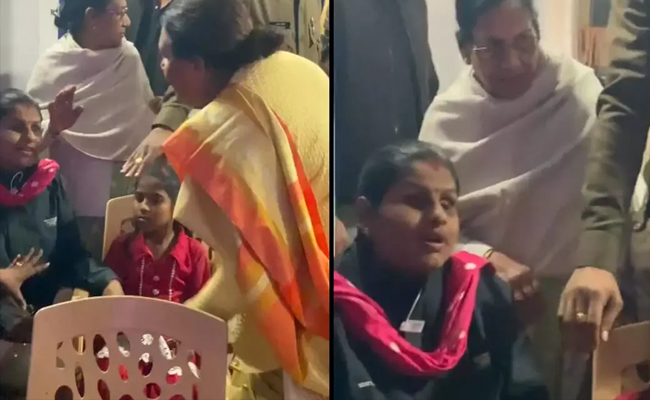Paris, Jan 9: France saw its youngest-ever prime minister and first openly gay one named on Tuesday as President Emmanuel Macron seeks a fresh start for the rest of his term amid growing political pressure from the far right.
Gabriel Attal, 34, rose to prominence as the government spokesperson then education minister and had polled as the most popular minister in the outgoing government.
His predecessor Elisabeth Borne resigned Monday following political turmoil over an immigration law that strengthens the government's ability to deport foreigners.
Macron will work with Attal to name a new government in the coming days, though some key ministers are expected to stay on.
'I know I can count on your energy and your commitment,' Macron posted on X in a message to Attal. The president made a reference to Attal reviving the 'spirit of 2017,' when Macron shook up politics and shot to a surprise victory as France's youngest-ever president on a pro-business centrist platform aimed at reviving one of the world's biggest economies.
During the handover ceremony, Attal said: "I could read and hear it: the youngest president of the Republic in history appoints the youngest prime minister in history. I want to see it only as the symbol of boldness and movement. It is also, and perhaps above all, a symbol of confidence in young people."
Attal said his goals include making security an "absolute priority" and promoting values of "authority and respect of others." He also vowed to strengthen public services including schools and the health system and push for "better controlling immigration."
Macron, 46, has shifted rightward on security and migration issues since his election, notably as far-right rival Marine Le Pen and her anti-immigration, anti-Islam National Rally have gained political influence.
The president's second term lasts until 2027, and he is constitutionally barred from a third consecutive term. Political observers have suggested that Macron, a staunch supporter of European integration, wants his new government to prepare for June's European Union elections, where far-right, anti-EU populists are expected to increase their influence.
Critics from both left and right took aim at Attal for his limited experience, his Paris upbringing seen as out of touch with people struggling in the provinces, and his loyalty to the president.
Le Pen posted on X: "What can the French expect from this 4th prime minister and 5th government in 7 years (under Macron)? Nothing," calling on voters instead to choose her party in the European elections.
In a statement, Eric Ciotti, head of the conservative party The Republicans, said, "France urgently needs action: it needs a different approach." The Republicans would remain a "responsible opposition" to the centrist government, he added.
The founder of the hard-left France Unbowed party, Jean-Luc M lenchon, writing on X, mocked Attal for "returning to his position as spokesman. The function of prime minister is disappearing. The presidential monarch alone rules his court."
Under the French political system, the prime minister is appointed by the president, accountable to the parliament and is in charge of implementing domestic policy, notably economic measures. The president holds substantial powers over foreign policy and European affairs and is the commander-in-chief of the country's armed forces.
Attal, a former member of the Socialist Party, joined Macron's newly created political movement in 2016 and was spokesperson from 2020 to 2022, a job that made him well-known to the French public. He was then named budget minister before being appointed in July as education minister, one of the most prestigious positions in government.
Attal quickly announced a ban on long robes in classrooms that took effect with the new school year in September, saying the garments worn mainly by Muslims were testing secularism in the schools.
He also launched a plan to experiment with uniforms in some public schools, as part of efforts to move the focus away from clothes and reduce school bullying.
Attal recently detailed on national television TF1 how he suffered bullying at middle school, including homophobic harassment.
Attal will face the same obstacle as his predecessor: Macron's centrists lost their majority in parliament last year, forcing the government into political maneuvering and using special constitutional powers to be able to pass laws.
The tough negotiations over the immigration bill and heated parliament debate raised questions over the ability of Borne's government to pass major legislation.
Borne also faced mass protests last year, often marred by violence, against a law to increase the retirement age from 62 to 64, and days of riots across France triggered by the deadly police shooting of a teen.
Borne left office saying she's proud of the work done over the last 20 months that allowed her government "to pass the budget, the pension reform, the immigration law and more than 50 other texts designed to meet the challenges faced by our country."
Interior Minister G rald Darmanin, who championed the immigration bill, said he was ready to continue his work at the head of the country's police forces especially as the Paris Olympics are to start in less than 200 days, with major security issues at stake.
Let the Truth be known. If you read VB and like VB, please be a VB Supporter and Help us deliver the Truth to one and all.
Jabalpur: Anju Bhargava, vice-president of BJP's Jabalpur city unit, has come under sharp scrutiny, creating the ripples of political controvery in Madhya Pradesh, after a video surfaced online showing her physically assaulting a visually impaired woman inside a church.
The New Indian Express has reported that the said incident reportedly took place on Saturday (20 Dec) at a church in the Hawa Bagh area, which comes under the limits of Gorakhpur police station.
The video footage that has circulated widely on Monday shows Anju Bhargava, assaulting the blind woman in the presence of a police officer. In the video, Bhargava is seen shouting at the woman, twisting her arm and forcibly grabbing her face. The victim can be heard pleading to Bhargava to speak to her rather than resorting to physical violence. Also, we can hear Bhargava screaming, “will be blind in her next birth too”
ALSO READ: Woman arrested for theft, stolen gold articles worth Rs 32 lakh seized
According to The Indian Express reports, Bhargava entered the church, with members of several Hindutva affiliated organisations, alleging that the visually impaired children were being forced into religious conversion; But, the students present at the church have flatly denied all the allegations.
An unnamed police officer cited in media reports states that there was no evidence to support claims of forced religious conversion. The incident has since intensified political debate in the state, with opposition parties demanding accountability and action against those involved.





